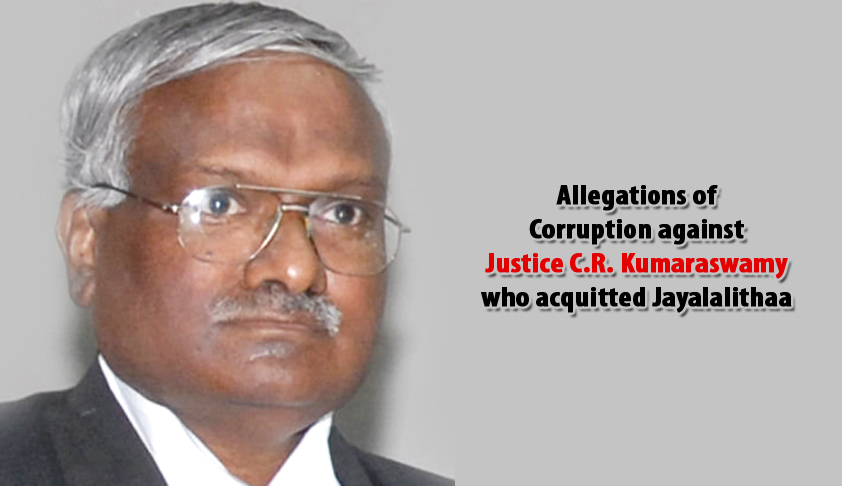Allegations of Corruption against Justice C.R. Kumaraswamy who acquitted Jayalalithaa
Apoorva Mandhani
26 Aug 2015 8:03 AM IST

Next Story
26 Aug 2015 8:03 AM IST
Justice C.R. Kumaraswamy, who acquitted Tamil Nadu Chief Minister J. Jayalalithaa in the disproportionate assets case recently, has reportedly been accused of acquiring property without following certain norms. The allegations have been leveled by Karnataka Brastachara Nirmoolana Vedike, a group of RTI activists and advocates working towards eradication of corruption in the State.They...
